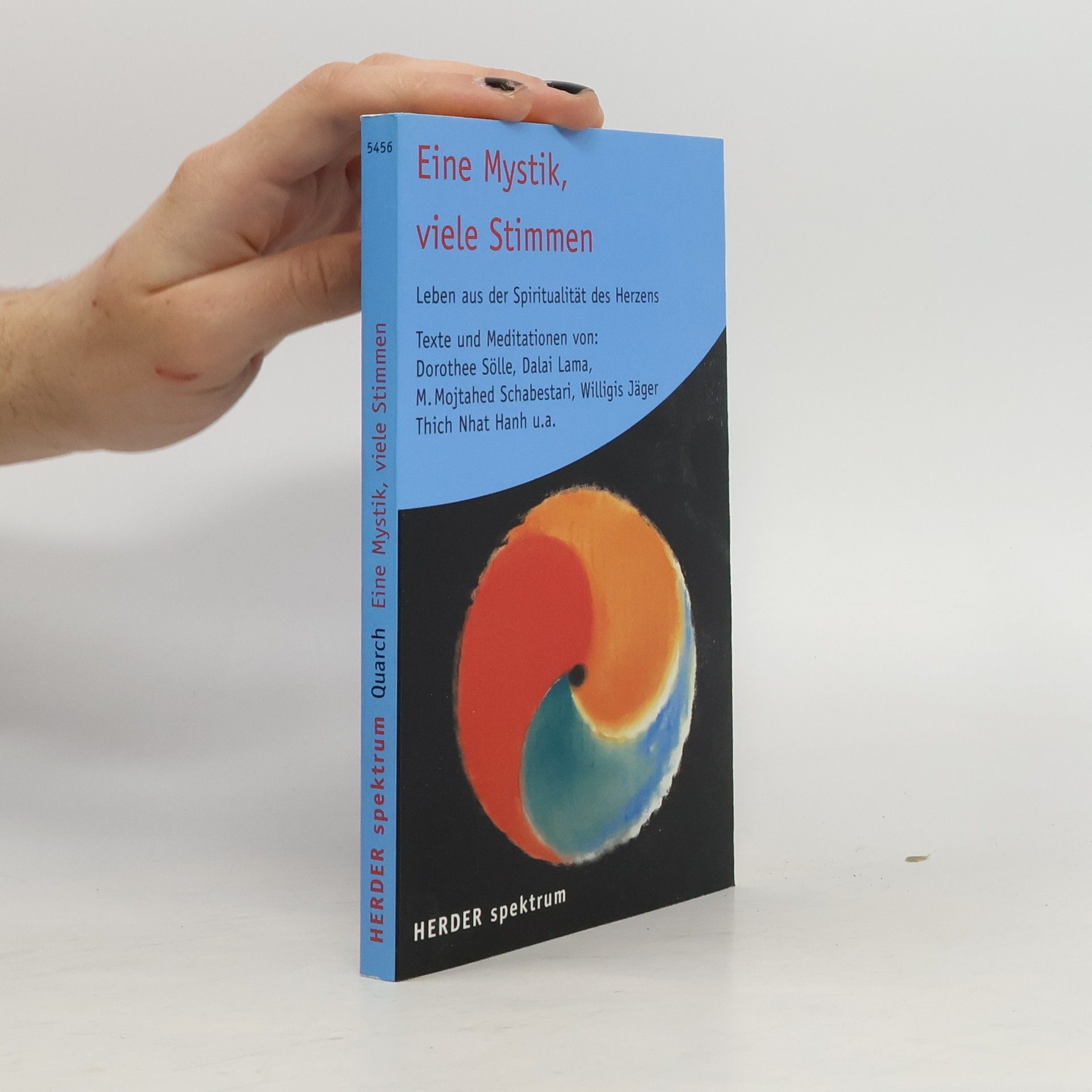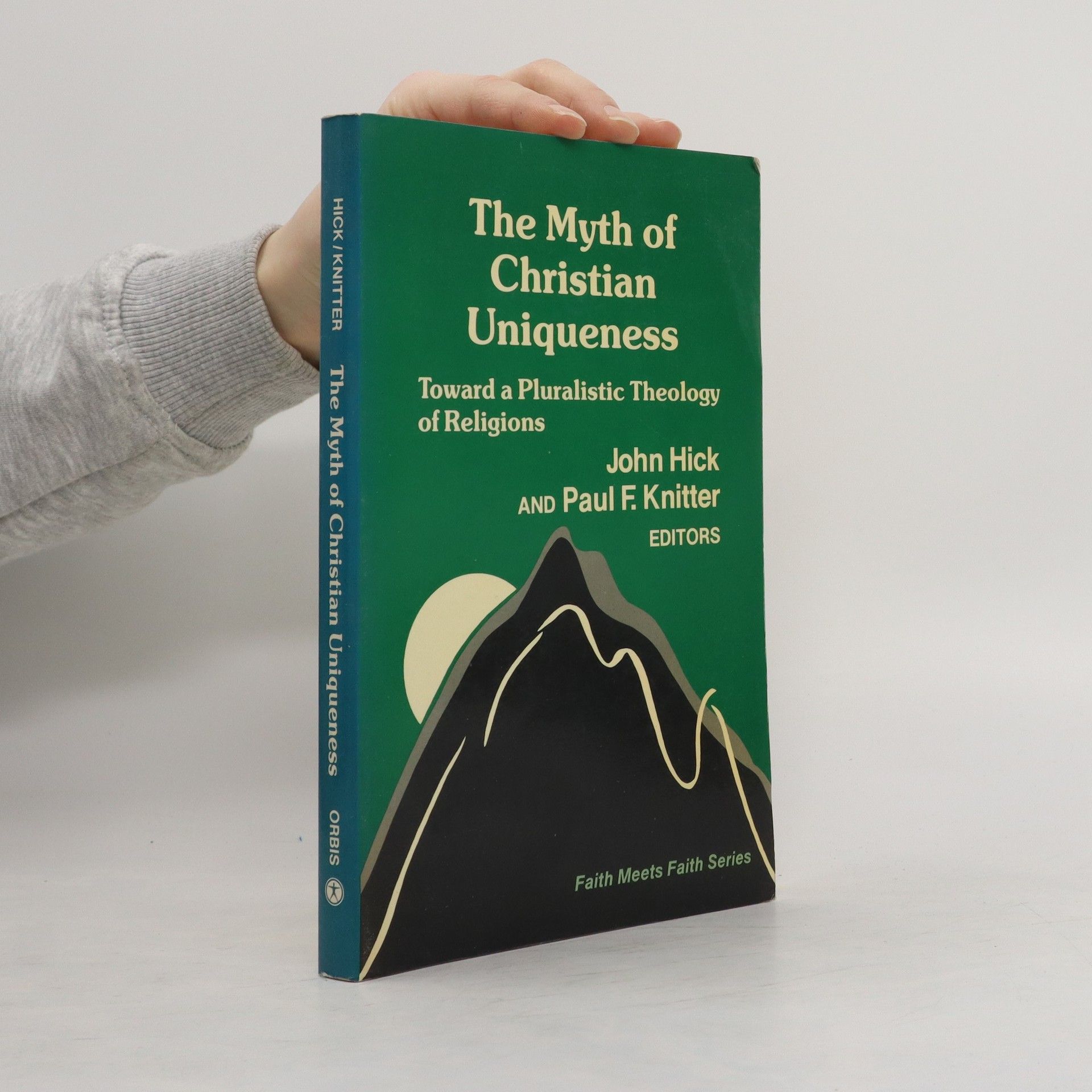Without Buddha I Could Not be a Christian
- 264 pages
- 10 hours of reading
A new updated edition of Professor Knitter's honest, unflinching account of re-finding one's faith
Paul F. Knitter is a leading theologian of religious pluralism, an emeritus professor of theology, world religions, and culture at Union Theological Seminary in New York. His extensive research and publications primarily focus on religious pluralism and interreligious dialogue, exploring the relationships between various faiths and their impact on global responsibility. Knitter critically examines Christian attitudes toward other world religions and the connections between spiritual paths, such as Christianity and Buddhism. His work significantly contributes to understanding the interdependence and coexistence of diverse religious traditions in the world.






A new updated edition of Professor Knitter's honest, unflinching account of re-finding one's faith
Ein spannendes, klar geschriebenes Buch von Paul F. Knitter, der seine religiösen Fragen und Einsichten teilt. Mit fundiertem Wissen über Buddhismus bringt er frische Perspektiven auf das Christentum. Eine anspruchsvolle Lektüre für alle, die sich intensiv mit ihrem eigenen Glauben und dem anderer beschäftigen möchten.
Unparalleled in scope and detail, this classic history of Zen covers all important ideas and developments in the tradition from its beginnings in India through the Sung period in China.
Paul F. Knitter, geboren 1938, ist ein katholischer Theologe und Professor für Theologie, Weltreligionen und Kulturen am Paul-Tillich-Lehrstuhl in New York City. Christoph Quarch, Jahrgang 1964, ist Dr. phil., Studienleiter des Deutschen Evangelischen Kirchentages und Chefredakteur der Zeitschrift Publik-Forum. Er lebt in Fulda. Gabriele Hartlieb, geboren 1967, hat Literaturwissenschaft sowie evangelische und katholische Theologie studiert. Sie ist Verlagslektorin, Autorin und Herausgeberin von Anthologien und lebt mit ihrer Familie in Freiburg im Breisgau. Jörg Zink (1922–2016) war ein einflussreicher evangelischer Theologe, Autor zahlreicher Bücher und engagierte sich für Frieden und Umweltschutz. Tenzin Gyatso, der 14. Dalai Lama, geboren 1935 in Tibet, floh 1959 nach Indien und gilt als Botschafter des Friedens sowie als bedeutender Repräsentant des Buddhismus. Thich Nhat Hanh, geboren 1926, ist ein bekannter Zen-Meister und Friedensaktivist aus Vietnam, der in der Gemeinschaft Plum Village in Frankreich lebt. Dorothee Sölle (1929-2003) war eine der prominentesten Theologinnen des 20. Jahrhunderts, die sich für Frieden und Gerechtigkeit einsetzte. Willigis Jäger (1925-2020), Benediktinermönch und Zenmeister, leitete den Benediktushof und war Autor. Ruth Lapide, geboren 1929, ist jüdische Theologin und Historikerin, die nach dem Tod ihres Mannes eine Karriere als Autorin begann.
s/t: Toward a Pluralistic Theology of Religions